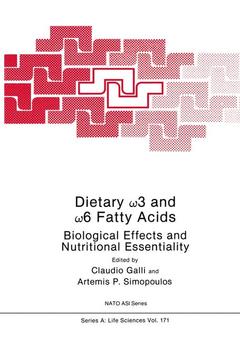On June 24-26, 1985, a major International Conference on the Hea1th Effects of P01yunsaturated Fatty Acids in Seafoods was held in Washington, D. C. The conference had two objectives: (1) to review the research data on the health effects of polyunsaturated fatty acids in seafoods in terms of the impact of omega-3 fatty acids on eicosanoid formation, thrombosis and inflammation, and the role of docosahexaenoic acid in membrane function and metabolism, and (2) to develop a research agenda to determine the spectrum of the health effects of polyunsaturated fatty acids of seafood origin in the American diet. The 1985 conference established the fact that omega-3 fatty acids of marine origin - eicosapentaenoic acid (EPA) and docosahexaenoic acid (DHA) - play important roles in prostaglandin metabolism, thrombosis and atherosc1erosis, immunology and inflammation, and membrane function. In response to the conference recommendations, the Congress of the United States provided special funding for the establishment of a "test materials 1aboratory" within the US Department of Commerce to produce under documented quality contr01 the types and quanti ties of omega-3 te~3t materials required by biomedica1 researchers. The forms of test materials to be produced include refined fish oil, polyunsaturated fatty acid enhanced triglycerides, concentrates of esters of fatty acids, purified omega-3 fatty acids, and omega-3 mono-, di- and tri~lyceride mixtures.

